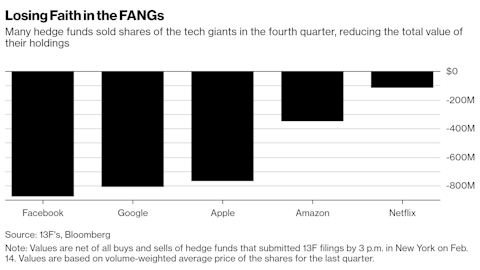You’re lounging on a beautiful beach while the bright Caribbean sun beats down on you from above. The beach is completely secluded (if you want it to be), your own private slice of paradise. Behind you, a luscious tropical forest to explore at your leisure, filled with wondrous creatures, amazing discoveries, and not the least bit of danger.
Is it the ultimate vacation trip, put together by some hotshot travel agency that serves the capricious whims of the exorbitantly wealthy? Not quite (although they’re surely out there). In this case, it’s simply a VR headset that you plonk on top of your noggin, allowing you to be whisked away to literally anywhere in the world (or outside of it) within seconds. Turn it on, choose your destination, and you’re there, fully immersed in the sights, sounds, smells, and even the touch of the virtual reality laid out before your eyes.
No more packing your bags, finding some poor sap to feed your parakeet for two weeks, or waiting hours for takeoff because someone was speaking Arabic and someone else didn’t like it. Terrible weather? Never. Lousy service? Forget about it. Heck, you don’t even need a translator, as no matter where you virtually roam you can communicate with everyone effortlessly. Why would anyone ever go on a real vacation ever again?
Science Fiction Becoming (Virtual) Reality: Sounds far-fetched right? Perhaps so, yet that’s the very real threat facing JetBlue Airways Corporation (NASDAQ:JBLU), Expedia Inc (NASDAQ:EXPE), Delta Air Lines, Inc. (NYSE:DAL), and virtually every other global airline and travel company, big and small.
Last year, Brian Krzanich, the CEO of chipmaker Intel Corporation (NASDAQ:INTC) showed off stunning VR demos to a room full of reporters at CES 2017 using Facebook Inc (NASDAQ:FB)‘s Oculus Rift headsets. The demos included an immersive parachuting demo and what he described as “the world’s first walk-around video experience”, allowing those assembled to explore a flawlessly reproduced virtual environment depicting a Vietnamese waterfall. Krzanich stated that VR will allow us to have the same kind of travel experiences as the real McCoy, all from the comfort of our living rooms.
Nor is it just the leisure travel industry that will feel the pinch. The increased simplicity and affordability of holding business meetings in VR hangouts will also cut into the $390 billion business travel industry. Doghead Simulations is just one company working on developing VR meeting spaces, ones which allow users to give full presentations in VR.
Facebook CEO Mark Zuckerberg has predicted that VR technology could reach 1 billion people eventually and believes it will form the core of future social interactions.
But Will People Actually Take to VR Holidays?: The success of Sony Corp (ADR) (NYSE:SNE)‘s PlayStation VR headset, which has sold over 2 million units (and that despite shortages holding back sales) is stoking the belief that VR’s time is here in terms of public acceptance. However, the jump from video games on a TV screen to video games through a VR headset is a much smaller one than the one from real vacations to fake ones.
Will people be able to get the same enjoyment out of virtual vacations, knowing that no matter how perfect they are, they simply aren’t real? Undoubtedly, some (or many) will not. And if people don’t quite take to having VR vacations, it’s possible that VR will actually benefit the travel industry, being used as a tool to scout out potential destinations for a real vacation.
On the next page we’ll look at some compelling stocks in the VR space and see how world-class investors feel about the prospects of VR and travel stocks.
VR Stocks That Will Benefit from the Industry’s Projected Growth: Predicting how the market will react to new technologies is perilous, as evidenced by the commercial failure of Google Glass. We were all supposed to look like giant dorks at this point, wearing our eyepieces everywhere and gesticulating haphazardly to control them. Instead, Glass died a quick death as a mass market commercial product, though it’s rumored that Alphabet Inc (NASDAQ:GOOGL) could bring Glass back in augmented reality (AR) form. Likewise, the 3-D printing craze that was supposed to revolutionize, well, everything, hasn’t quite materialized.
Fittingly, estimates of the VR industry’s growth vary widely, with Grand View Research predicting it to be a $48.5 billion industry by 2025, while Greenland Insights predicts much faster growth, with the industry projected to hit $74.8 billion by 2021. On the other hand, Superdata predicts that the industry will only reach $28.5 billion by 2020, though that would still represent immense growth from the $2.2 billion size of the industry in 2017.
VR is undeniably a booming industry, regardless of how much it ultimately disrupts the travel industry or not. In addition to Sony Corp (ADR) (NYSE:SNE), Facebook Inc (NASDAQ:FB), and Intel Corporation (NASDAQ:INTC), other stocks with burgeoning VR potential include Microsoft Corporation (NASDAQ:MSFT), Ambarella Inc (NASDAQ:AMBA), Himax Technologies, Inc. (ADR) (NASDAQ:HIMX), and Vuzix Corporation (NASDAQ:VUZI).
Vuzix Corporation (NASDAQ:VUZI), which received a $25 million investment from none other than Intel Corporation (NASDAQ:INTC), could grow its revenue ten-fold by 2020 according to investment banking firm Craig-Hallum. The small company has developed the well-received M100 headset and is also dipping its toes into smart glasses, having inked a deal with Toshiba last year to develop two such products for the company.
Ambarella Inc (NASDAQ:AMBA), which is well-known in the drone camera space, is also cautiously optimistic about the VR camera space, having introduced the first 8K Ultra HD chip for use with VR and other cameras early last year. While Ambarella’s current growth is sluggish due to declining GoPro Inc (NASDAQ:GPRO) sales, VR is expected to be a bright spot for the company in the near-to-medium term.
Likewise, Himax Technologies, Inc. (ADR) (NASDAQ:HIMX) is facing some short-term pressure due to iPhone X weakness, but its revenue and margins are expected to grow tremendously in the coming years thanks to augmented and virtual reality being directly incorporated into smartphones, as well as big product releases from Microsoft Corporation (NASDAQ:MSFT) (Hololens) and Facebook (Oculus Go).
Hedge Funds Losing Faith in Airline Stocks?: Several airline stocks lost notable support in the fourth-quarter from the 662 active hedge funds tracked by Insider Monkey. Just 19 of those hedge funds owned Spirit Airlines Incorporated (NASDAQ:SAVE) at the end of 2017, down from 28 a quarter earlier. American Airlines Group Inc (NASDAQ:AAL) (down by nine to 39) and Alaska Air Group, Inc. (NYSE:ALK) (down by 9 to 33), also lost sizable chunks of their hedge fund support.
On the other hand, many investors clearly aren’t too concerned about any looming VR threat to the sector. Take legendary billionaire investor Warren Buffett, who just sent airline stocks flying high this week after he told CNBC that he would consider purchasing an airline. His $520 billion holding company Berkshire Hathaway Inc. (NYSE:BRK.A) received a $29 billion windfall from Republican tax cuts in 2017 and has cash to spend (and a lot of it).
While the threat isn’t imminent, it is coming sooner than later, and there may not be much that the travel industry can do to stop it. However, consumer preferences will ultimately be the judge of whether VR takes off. If people don’t want to go on VR holidays, then the best tech in the world will do little to change that. Will they? We simply don’t know the answer yet. But it’s something that investors of both industries will need to closely monitor.
Disclosure: None





